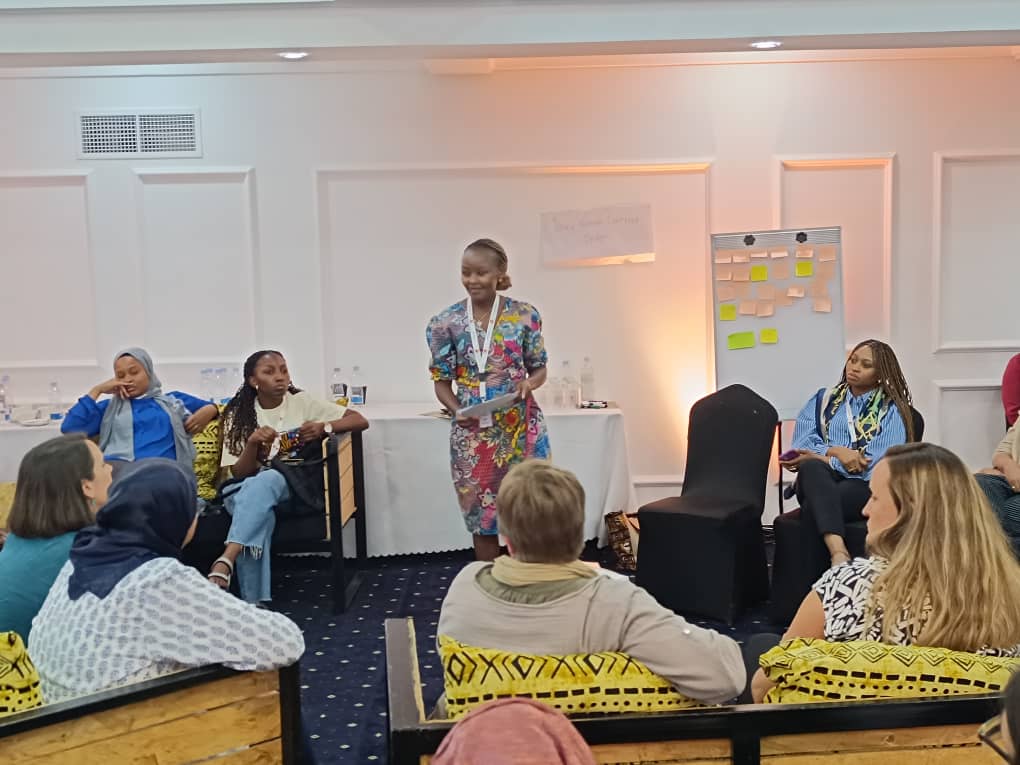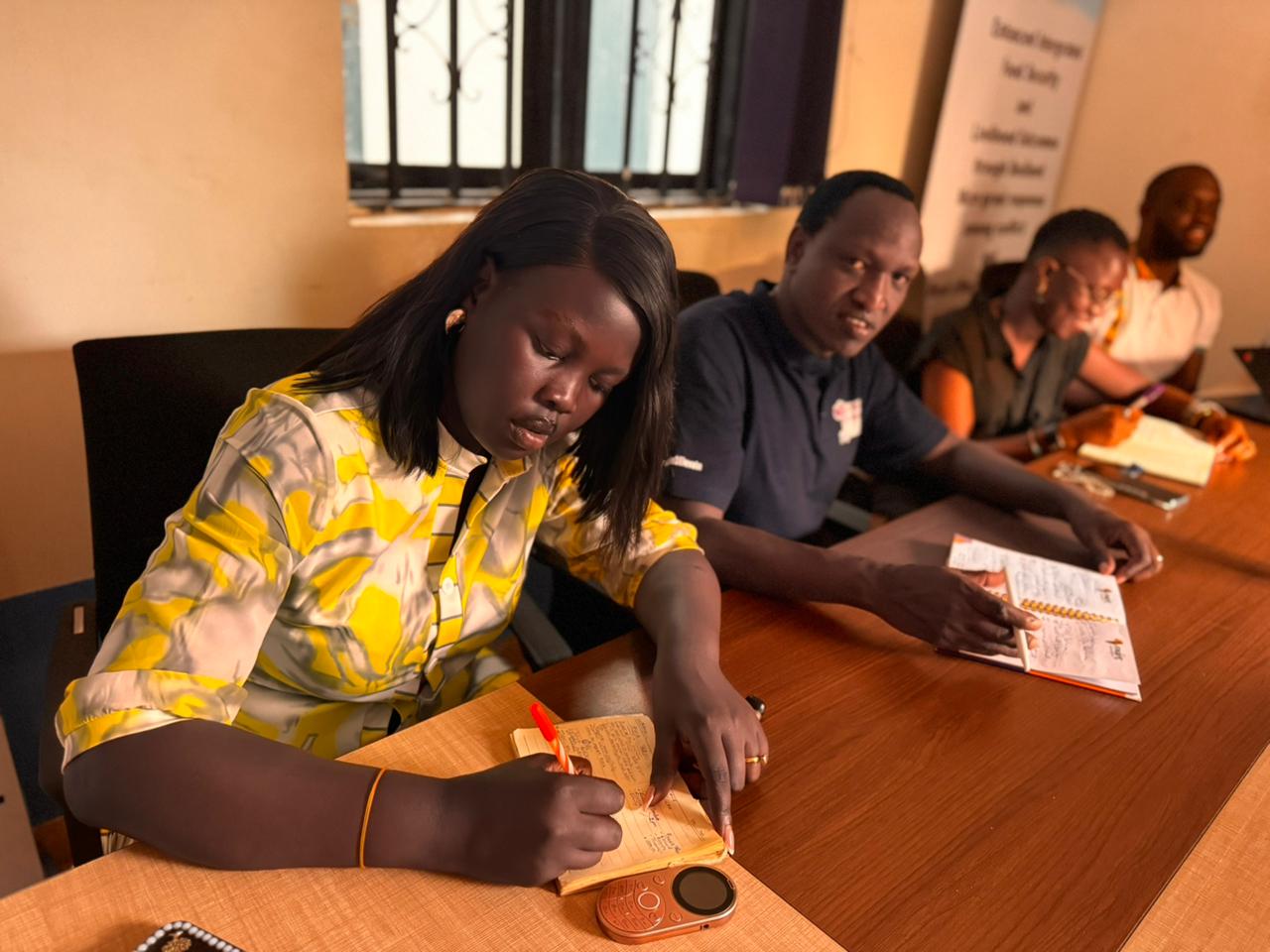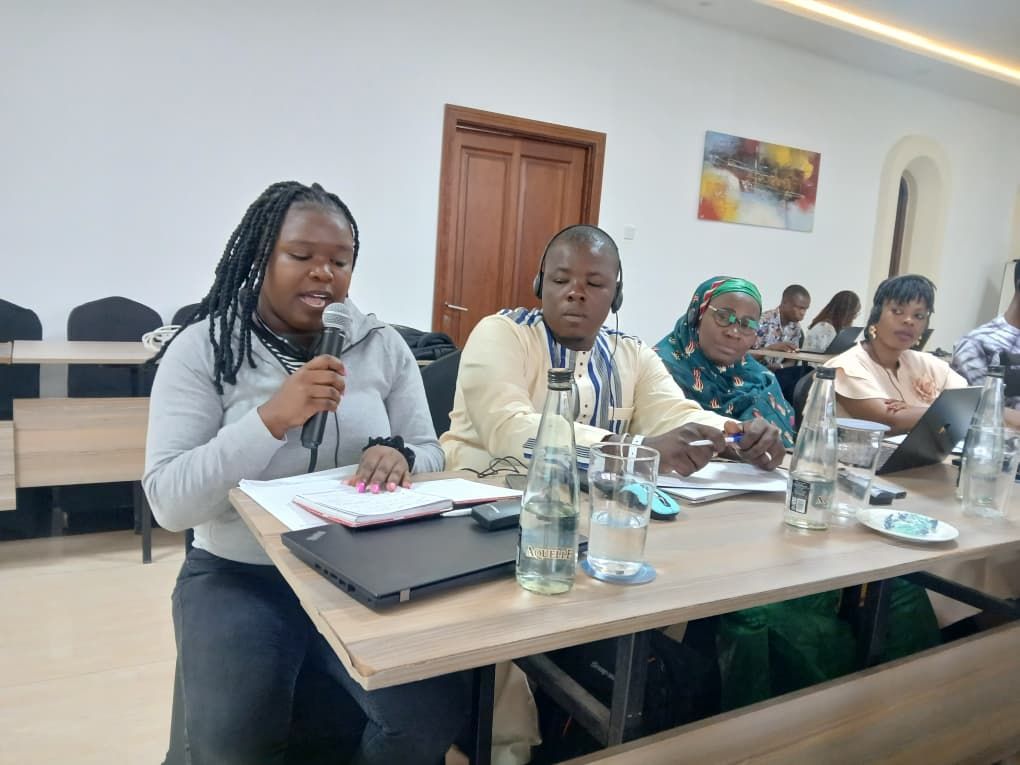At the recent Mastercard Foundation Scholars Program Partner Convening, a different kind of architectural plan was being drafted—one for the minds and futures of young African women. And the chief architects at this pivotal moment were FAWE.
Represented by Programme Officer Naomi Kamitha and Senior Communications Officer Kossi Tsenou, FAWE’s presence was a statement of intent. While the broader gathering buzzed with the important work of transforming education, the duo from FAWE delivered a masterclass in a specific, potent methodology: Young Women–Centered Design.
Kamitha, stepping beyond the traditional role of a delegate, took the floor not just to speak, but to facilitate a fundamental rewiring. Her session posed a radical, yet self-evident question: What if education systems were not merely made accessible to young women, but were meticulously designed around them? This is the core of Young Women–Centered Design—a philosophy that moves beyond inclusion as a checkbox and into empowerment as an architectural principle.
The insight she shared was that equitable learning environments are not accidental; they are constructed with intentionality. This approach considers everything from curriculum CONTENT and pedagogical styles to safety protocols and leadership pathways, all through the unique lens of a young woman’s experience, aspirations, and challenges. It’s a shift from building doors and hoping they walk through, to co-designing the entire structure with them.
While Kamitha laid out the internal framework, Tsenou’s role was to fortify the structure—ensuring the powerful narrative of this methodology is communicated to mobilize action and shift perceptions. Together, they formed a potent synthesis of strategy and story.
This was more than just another conference session. It was a declaration that empowering young women is not a charitable act, but a design challenge. It posits that when you center the most marginalized voices in the design process, you don’t just create solutions for them; you unlock innovations that elevate entire systems. The change, FAWE argued, begins not in the classroom, but in the planning room.
By showcasing this methodology on a pan-African stage, FAWE successfully planted a seed of a more profound transformation. They demonstrated that the future of education on the continent depends not just on more scholarships or schools, but on a more intelligent, responsive, and courageous design—one where every young woman sees herself not as a guest, but as the cornerstone.




Leave A Comment